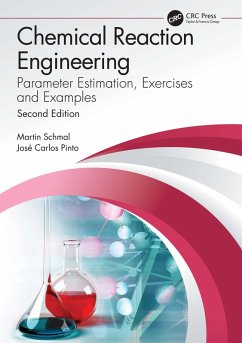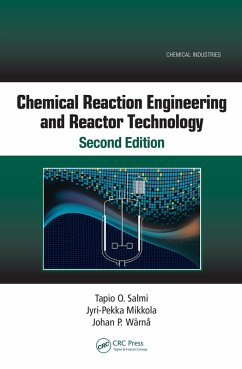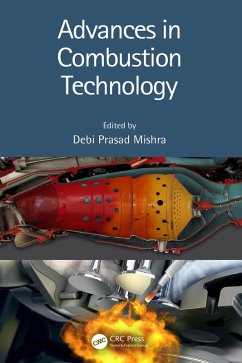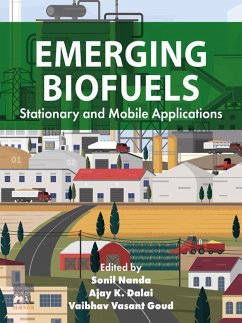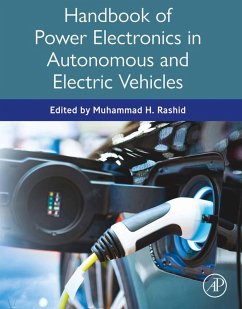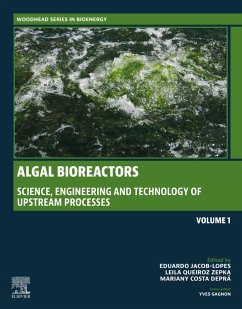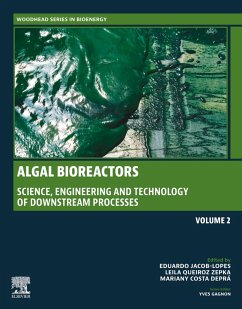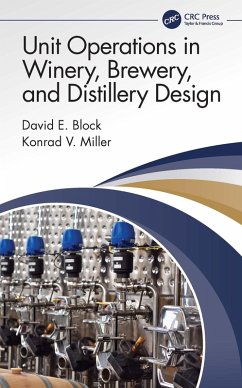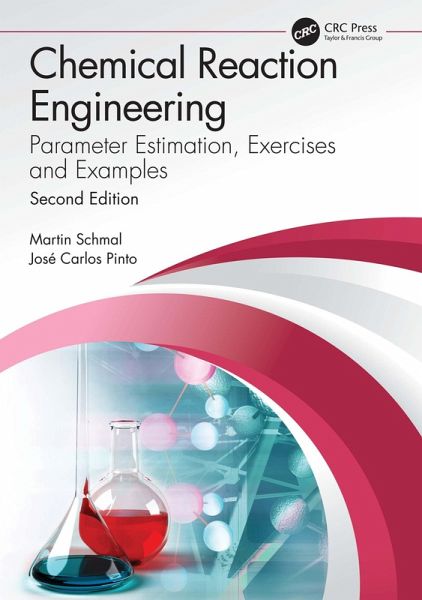
Chemical Reaction Engineering (eBook, ePUB)
Parameter Estimation, Exercises and Examples
Versandkostenfrei!
Sofort per Download lieferbar
72,95 €
inkl. MwSt.
Weitere Ausgaben:

PAYBACK Punkte
36 °P sammeln!
The first English edition of this book was published in 2014. This book was originally intended for undergraduate and graduate students and had one major objective: teach the basic concepts of kinetics and reactor design. The main reason behind the book is the fact that students frequently have great difficulty to explain the basic phenomena that occur in practice. Therefore, basic concepts with examples and many exercises are presented in each topic, instead of specific projects of the industry. The main objective was to provoke students to observe kinetic phenomena and to think about them. I...
The first English edition of this book was published in 2014. This book was originally intended for undergraduate and graduate students and had one major objective: teach the basic concepts of kinetics and reactor design. The main reason behind the book is the fact that students frequently have great difficulty to explain the basic phenomena that occur in practice. Therefore, basic concepts with examples and many exercises are presented in each topic, instead of specific projects of the industry. The main objective was to provoke students to observe kinetic phenomena and to think about them. Indeed, reactors cannot be designed and operated without knowledge of kinetics.
Additionally, the empirical nature of kinetic studies is recognized in the present edition of the book. For this reason, analyses related to how experimental errors affect kinetic studies are performed and illustrated with actual data. Particularly, analytical and numerical solutions are derived to represent the uncertainties of reactant conversions in distinct scenarios and are used to analyze the quality of the obtained parameter estimates. Consequently, new topics that focus on the development of analytical and numerical procedures for more accurate description of experimental errors in reaction systems and of estimates of kinetic parameters have been included in this version of the book. Finally, kinetics requires knowledge that must be complemented and tested in the laboratory. Therefore, practical examples of reactions performed in bench and semi-pilot scales are discussed in the final chapter.
This edition of the book has been organized in two parts. In the first part, a thorough discussion regarding reaction kinetics is presented. In the second part, basic equations are derived and used to represent the performances of batch and continuous ideal reactors, isothermal and non-isothermal reaction systems and homogeneous and heterogeneous reactor vessels, as illustrated with several examples and exercises. This textbook will be of great value to undergraduate and graduate students in chemical engineering as well as to graduate students in and researchers of kinetics and catalysis.
Additionally, the empirical nature of kinetic studies is recognized in the present edition of the book. For this reason, analyses related to how experimental errors affect kinetic studies are performed and illustrated with actual data. Particularly, analytical and numerical solutions are derived to represent the uncertainties of reactant conversions in distinct scenarios and are used to analyze the quality of the obtained parameter estimates. Consequently, new topics that focus on the development of analytical and numerical procedures for more accurate description of experimental errors in reaction systems and of estimates of kinetic parameters have been included in this version of the book. Finally, kinetics requires knowledge that must be complemented and tested in the laboratory. Therefore, practical examples of reactions performed in bench and semi-pilot scales are discussed in the final chapter.
This edition of the book has been organized in two parts. In the first part, a thorough discussion regarding reaction kinetics is presented. In the second part, basic equations are derived and used to represent the performances of batch and continuous ideal reactors, isothermal and non-isothermal reaction systems and homogeneous and heterogeneous reactor vessels, as illustrated with several examples and exercises. This textbook will be of great value to undergraduate and graduate students in chemical engineering as well as to graduate students in and researchers of kinetics and catalysis.
Dieser Download kann aus rechtlichen Gründen nur mit Rechnungsadresse in A, B, BG, CY, CZ, D, DK, EW, E, FIN, F, GR, HR, H, IRL, I, LT, L, LR, M, NL, PL, P, R, S, SLO, SK ausgeliefert werden.




